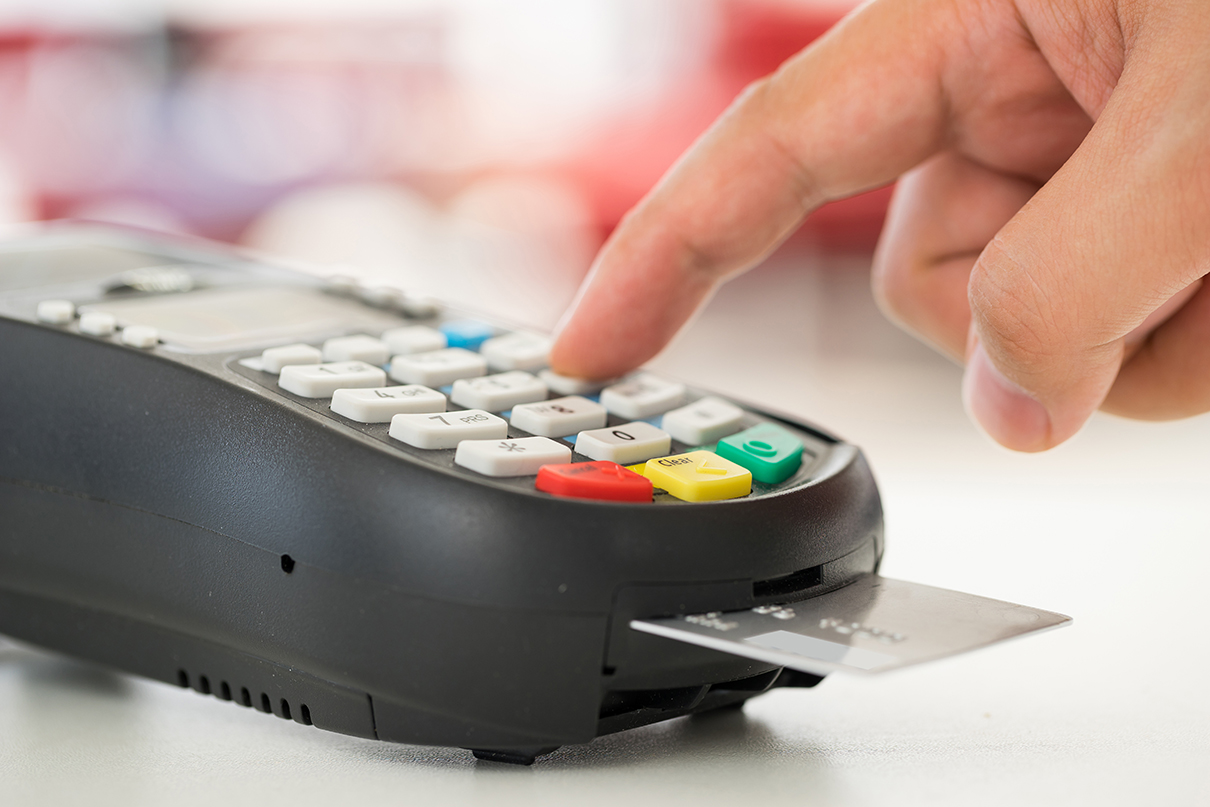Do you find the new "smart" credit cards - the ones with a computer chip embedded on their front - a pain? Some merchants have chip card readers, and some don't. You don't know without asking or without first swiping. If swiping doesn't work, you have to insert the front edge of your credit card just right, then leave it in until the transaction is over. All this adds to the time it takes to pay.
This might get better soon, at least in part.
On April 19, Visa announced it will be upgrading its software to enable card users to insert their chip card into a card reader and withdraw it in two seconds or less, instead of waiting until the purchase is authorized. This will make the experience more like swiping a card. You'll be able to put the card right back in your wallet while your items still are being rung up.
The new smart credit chips are designed to reduce credit card fraud, and they appear to be successful. Among 25 large merchants that experienced the most credit card counterfeit fraud at the end of 2014, five that began processing credit and debit cards equipped with the new computer chip technology experienced an 18-percent drop in such fraud, according to Visa.
But not all merchants have equipped themselves with credit card terminals designed to read the new chips. Visa says five large merchants that haven't done this have experienced an 11-percent increase in fraud.
Beginning Oct. 1, 2015, a new law stipulated merchants that don't use the new technology now will be liable if a crook uses a counterfeit credit card. Before that, the bank issuing the credit card was liable.
What hasn't changed is consumers, for the most part, still are not liable for credit card fraud. If your physical card is stolen, federal law limits you to $50 in liability as long as you report the theft within 60 days of receiving your statement. Typically, however, credit card companies waive the $50 charge. If your information alone is stolen, you have zero liability.
Along with being called chip cards, smart credit cards also are called EMV cards. EMV stands for Europay, MasterCard, and Visa, the three companies that created the technology. The new cards produce a unique code for each transaction, which changes each time the card is used.
Among big retailers, Wal-Mart has been at the vanguard in taking advantage of these cards. In implementing the software update, called "Quick Chip," the world's largest retailer says it has cut the time of chip card transactions in its stores by as much as 11 seconds.
But just as not all stores have moved to being able to read the chips from chip cards in a timely way, not all likely will implement the new fast chip technology any time soon.
Visa says it will offer the quick chip update for free to payment processors, but they can decide whether they want to charge merchants for it. Consumers won't need to make any changes to the chip cards already in their wallets to use the faster service, and, as with chip cards in general, they're not charged more for using them.
